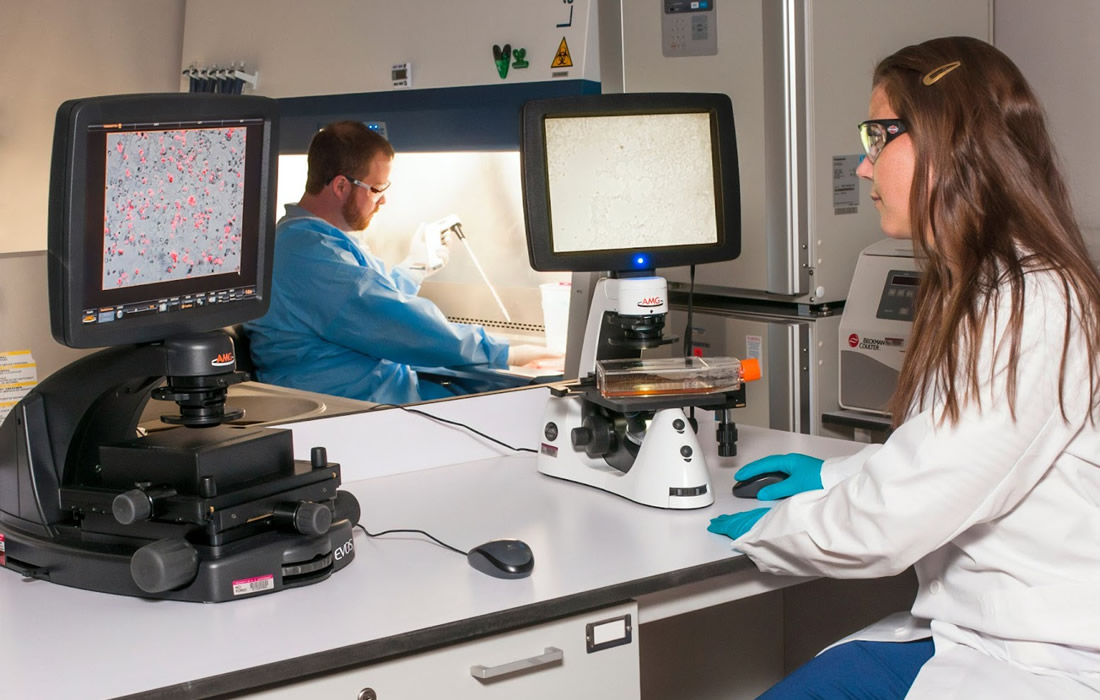Regenerative Medicine News and General Information
New Options for Treating Aggressive Prostate Cancer
Cedars-Sinai Cancer investigators have identified two promising new treatment options for men with recurrent prostate cancer — both of which helped patients live longer without their disease progressing than the current standard treatment.
Cancer of the prostate, a walnut-sized gland that helps make semen, will be diagnosed in 288,300 men in the U.S. in 2023, according to American Cancer Society estimates. For some, treatment may never be needed because they have a slow-growing form of the disease, but those with more aggressive prostate cancer are often first treated with surgery or radiation therapy.
Patients with aggressive recurrence are treated with androgen deprivation therapy (ADT), also known as hormone therapy, which reduces the patient’s production of the male sex hormone testosterone. Testosterone helps prostate cancer cells grow and spread, and the hormone therapy effectively reduces the growth-stimulating effects. But Freedland said ADT has two downsides: It doesn’t completely eliminate testosterone, and it can cause many side effects.
“When you go on ADT, the testosterone level in the blood is reduced, but not completely eliminated,” Freedland said. “And the concern is that the testosterone that remains may still be enough to stimulate tumor growth. Also, patients don’t love the idea of being on hormones.”
In the randomized clinical trial, one-third of the patients received ADT plus a medication called enzalutamide, which blocks the effects of testosterone. Enzalutamide keeps any testosterone remaining in the blood from stimulating the growth of cancer cells.
Another third of the patients received enzalutamide alone. This option relied on the medication to block the effects of testosterone even though testosterone levels in the patients’ blood were not reduced.
“We wanted to see whether enzalutamide on its own was so effective that we didn’t need the ADT,” Freedland said.
The final group of patients received ADT alone, which is the current standard treatment.
Investigators found that the combination of ADT plus enzalutamide reduced the risk of metastasis or death by 58% over ADT alone. They found that enzalutamide alone reduced the risk of metastasis or death by 37% over ADT alone. Both treatments maintained quality of life relative to the ADT alone.
“While the combination therapy offers greater risk reduction, some men might prefer enzalutamide alone. It does a good job of preventing cancer spread or death, with different side effects that may be more acceptable for some men,” Freedland said.
The next step is for the makers of enzalutamide to apply for FDA approval, so the experimental therapy can come into wide use, Freedland said.
Sources:
Stephen J. Freedland, Murilo de Almeida Luz, Ugo De Giorgi, Martin Gleave, Geoffrey T. Gotto, Christopher M. Pieczonka, Gabriel P. Haas, Choung-Soo Kim, Miguel Ramirez-Backhaus, Antti Rannikko, Jamal Tarazi, Swetha Sridharan, Jennifer Sugg, Yiyun Tang, Ronald F. Tutrone, Balaji Venugopal, Arnauld Villers, Henry H. Woo, Fabian Zohren, Neal D. Shore. Improved Outcomes with Enzalutamide in Biochemically Recurrent Prostate Cancer. New England Journal of Medicine, 2023; 389 (16): 1453 DOI: 10.1056/NEJMoa2303974
Cedars-Sinai Medical Center. “Promising new options for treating aggressive prostate cancer.” ScienceDaily. ScienceDaily, 18 October 2023. <www.sciencedaily.com/releases/2023/10/231018194545.htm>.
Materials provided by Cedars-Sinai Medical Center. Note: Content may be edited for style and length.
Images from:
Photo by National Cancer Institute

